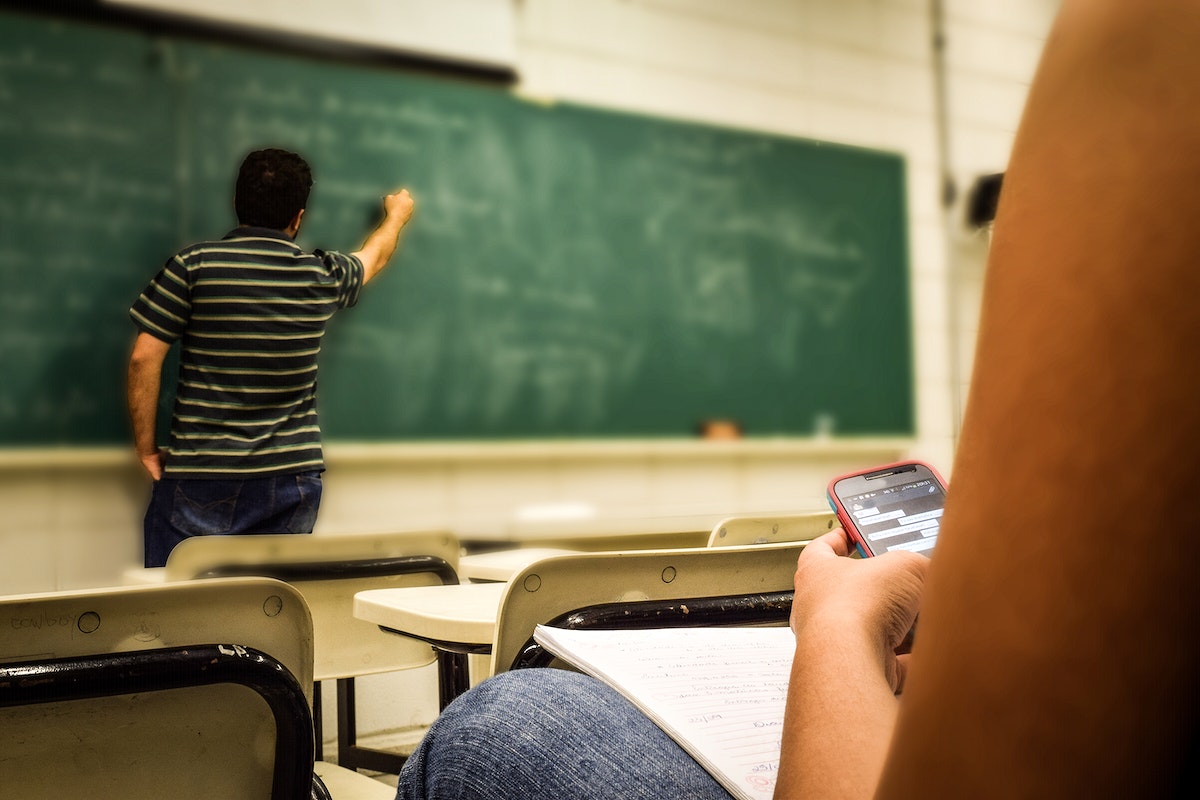Educators support locally driven policies banning student cell phone use
By Chandra Madafferi, Michigan Education Association President and CEO

On my children’s first day back at high school a few weeks ago, our district’s superintendent pointed out that the effects of the pandemic still linger; far too many students continue to struggle with mental health issues like anxiety and depression, as well as underdeveloped social skills.
Many of these challenges are worsened by students’ overexposure to social media on their cell phones. I regularly take breaks from social media because it can be overwhelming. Social media overuse is even more damaging to children, for whom a social media presence is often central to their social lives.
To help address some of these challenges, many of our district’s schools now require students to lock their phones in pouches that can only be unlocked by school staff at the end of the day. At the high school, students’ phone access is limited to lunch and hall passing time.
I must admit that when I first heard this, I felt anxious as a parent — what if I needed to text my kids during the day? How would they reach me?
However, as a teacher, I understand the rationale. Students must be fully engaged at school to learn and develop critical social skills. They can’t do that if they’re glued to a screen. What’s more, teachers must waste lots of instructional time arguing with kids about their phones.
When I discussed the phone ban with my son, he pointed out that “talking is talking,” whether in person or via text, and it still qualifies as communication. He noted that today’s kids are arguably more interconnected with peers at their own schools and with others through shared interests and social groups than students were when I was in school.
Still, as both a teacher and a parent, I believe it’s critical for children to experience downtime and be comfortable with their own thoughts. Our children may miss out on long car rides just looking out the window — moments that encourage reflection and imagination. Even though my kids have learned to communicate well, I hope they still find value in those quiet, screen-free moments, where great ideas are born and self-discovery happens.
According to a new survey from the National Education Association, my fellow educators overwhelmingly agree and support local policies that would ban cell phone use among students while at school. Allowing students to access social media and other apps on their personal devices harms their mental health, interrupts instructional time and stunts their social development, educators reported in the survey.
Among the findings:
- 91% of educators surveyed report having serious concerns about their students’ mental health, and 87% say there has been an increase in mental health incidents at their schools over the past few years. Students cannot concentrate on their schoolwork, lack motivation, frequently miss school, and demonstrate negative behaviors toward others.
- 75% of educators say social media is “a serious problem” at their school. They worry that students’ social media use — both at school and at home — leads to cyberbullying and underdeveloped social skills.
- 90% of educators support policies implemented at the school district level prohibiting cell phone use during instructional time, and 83% support banning phones throughout the entire school day, provided exceptions are made for those with medical or assistive technology needs.
Finally, it’s important to note that educators support locally driven policies — not top-down federal or state bans. Each school district is different, and each requires local solutions that involve frontline educators and families in the decision-making process.
As a parent, I will need to adjust to being less connected to my kids during the school day. Instead, I will embrace a similar approach to what my parents experienced when phones were still tethered to the wall, and I had to walk to the school office to call my parents. The tradeoff is we students then were far less distracted — at least by technology.
Labor Voices
Labor Voices columns are written on a rotating basis by United Auto Workers President Shawn Fain, Michigan Education Association President Chandra Madafferi, Michigan Regional Council of Carpenters and Millwrights Executive Secretary-Treasurer Tom Lutz and selected Service Employees International Union members.



